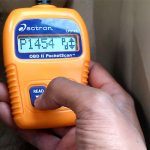There is something tricky about transmissions. There is an incredible amount of complexity and intricate detail involved. Now more than ever, this is true. Increasing digitization in automobiles and the advent of computers have resulted in more complicated transmissions.
In such cases, trying to figure out just what the problem is with a transmission can be quite challenging. Electronic transmission can do nearly anything if it is not appropriately controlled. The likelihood of rough shifts is, therefore, high.
The diagnosis may require a comprehensive process. For example, insufficient, dirty, or old transmission fluids often cause transmission problems.
Due to the computer’s role or just because transmissions are inherently complex machines, it may not be easy to determine the cause of a transmission’s problems immediately.
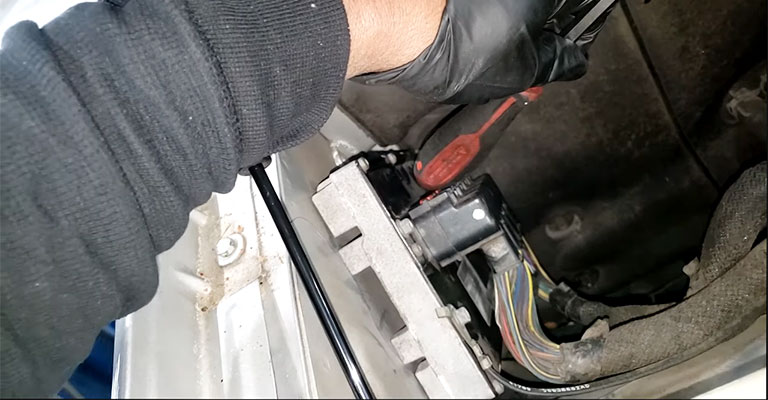
Can A Bad Computer Cause Transmission Problems?
Recent years have seen an increase in computerized transmissions. Generally speaking, this is a good thing. Unfortunately, however, transmission problems can become even more challenging to solve.
It is common for a faulty sensor to cause transmission problems due to incorrect signals being sent by the computer system. In addition, bad connections and defective solenoid packs are common causes of computerized transmissions not responding to commands.
Erratic Or Random Shifting
A PCM failure can cause irregular shifting, which is a serious symptom. In addition, PCMs and TCMs can malfunction due to faulty sensors or water damage.
Take your automatic transmission vehicle to a mechanic as soon as possible if it isn’t shifting normally. Failure of either the PCM or TCM can result in the car getting stuck in gear, which poses a severe safety risk. It can also cause transmission damage that is costly to repair.
Is It My Transmission Control Module Or My ECM?
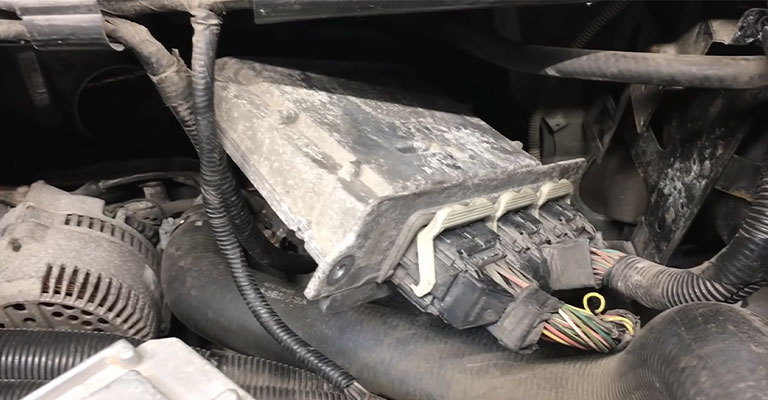
There are a number of things that can cause transmission problems. Engine Control Modules (ECMs) are among those things. In the event of transmission problems, it’s not recommended that you immediately blame your vehicle’s computer if you have them.
It’s always a good idea to perform an ECM reset before ruling out a bad transmission control module. This is because you may experience shift lock or random shifts and constantly get stuck in neutral when shifting when you have a bad transmission module.
The most common cause of transmission problems is a simple issue that could be causing a problem. However, it would save you a lot of headaches if you checked the transmission fluid levels regularly.
You can usually determine the cause of your transmission acting up by running a few diagnostic tests. For example, your engine’s computer may turn on the check engine light when there is a problem with your transmission case pressure or oil pressure sensor switch.
Perhaps you don’t even have transmission problems, but it feels like you do. This is because the transmission control module can act weird when it doesn’t work right, giving you the feeling you have a transmission problem.
You might think your car is jumping because of a slipping transmission, but it could actually be your engine choking. This is because TCM affects your fuel/air mixture, timing, and spark control.
And don’t dismiss what could make your TCM act funny when it’s not broken. It’s possible to send inadequate voltage to your Transmission Control Module if you’ve got a bad battery, an alternator, or another electrical problem.
Other Causes Transmission Problems
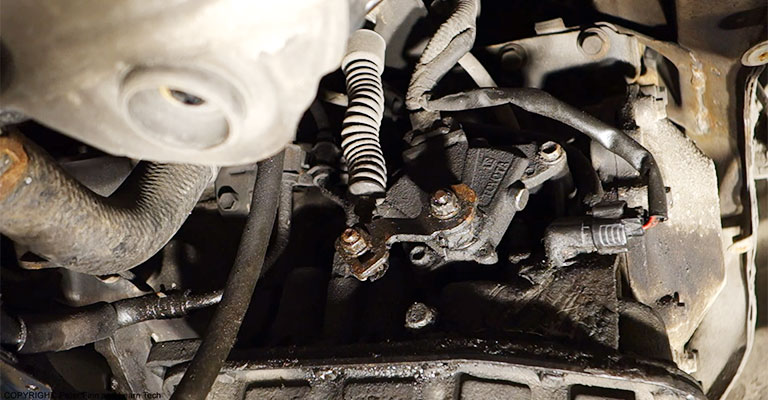
There are a lot of different transmission problems. There are times when you know you’re having transmission problems. Occasionally, you know something’s wrong with your vehicle, but you’re not sure what it is.
Occasionally, you don’t even realize that your car isn’t running at its best because there’s something wrong with the transmission. You’ve probably got a transmission problem if you hear harsh noises when shifting gears.
It’s the same with slipping, erratic shifting, and late or early shifts. Wear and tear on your transmission can cause this (but not always). Besides that, there’s other stuff wrong with the transmission.
Wear And Tear
A lot of transmission problems are caused by wear and tear. Checking your transmission fluid is an excellent way to determine if you have a problem. You should be fine if it’s clear red.
In contrast, if your transmission fluid looks discolored or smells weird, it’s probably worn out. You might need an internal inspection of your transmission if the fluid is discolored and there are other problems.
The powertrain control module manifests a variety of erratic behaviors. Engines and transmissions work together through the PCM. If it’s not working right, the vehicle will have significant problems.
What Triggers the PCM Failure Symptoms?
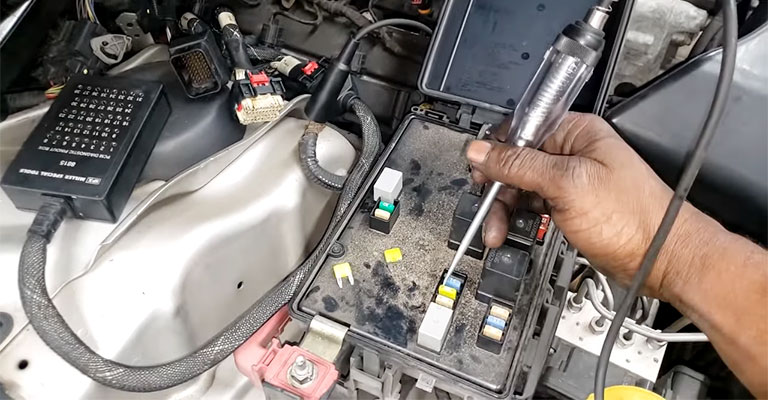
PCMs can go berserk for two reasons: they get overheated or overloaded with data.
Environmental Factors
PCMs are highly sophisticated machines that can’t handle extreme weather. The biggest damage comes from water. PCMs can be irreparable even with a few drops. Auto repair shops can’t repair water-damaged PCMs.
Two other environmental factors can mess up the PCM: extreme heat and excessive vibration. Microcracks in circuit boards can be repaired by vibration or heat.
PCMs may need to be repaired or replaced depending on their symptoms. Swapping boxes is all it takes to replace. However, before you remove the old PCM and install the new one, remember to disconnect the battery.
Voltage Overloads
Voltage overloads and PCM damage can be caused by a short in the actuator circuit or solenoid. The best way to find out what’s wrong is to have a professional mechanic diagnose it.
Make sure you fix or replace the shorted solenoid or actuator if a voltage overload is causing the problem. If it doesn’t, the new PCM will have the same problem.
Note:
If your vehicle can’t shift gears, you might have a problem with the PCM. Your PCM controls both your engine and transmission. Your PCM might cause any problems you’re experiencing with your powertrain.
If your vehicle has shifting problems, you should have it addressed as soon as possible. The result will be erratic handling of your vehicle, which can rapidly result in a serious accident.
Final Words
It is not advisable to wait until a rainy day to get your transmission fixed if you feel it is acting up, whether it is a problem with the ECM or one of the many other issues.
It won’t make a difference if you ignore problems like these for too long. If you don’t fix your vehicle, you will eventually be stranded.
Furthermore, the longer you put off fixing a faulty transmission, the higher the chance that you will have to spend more money to fix it since these symptoms can cost you more at an auto repair shop.

